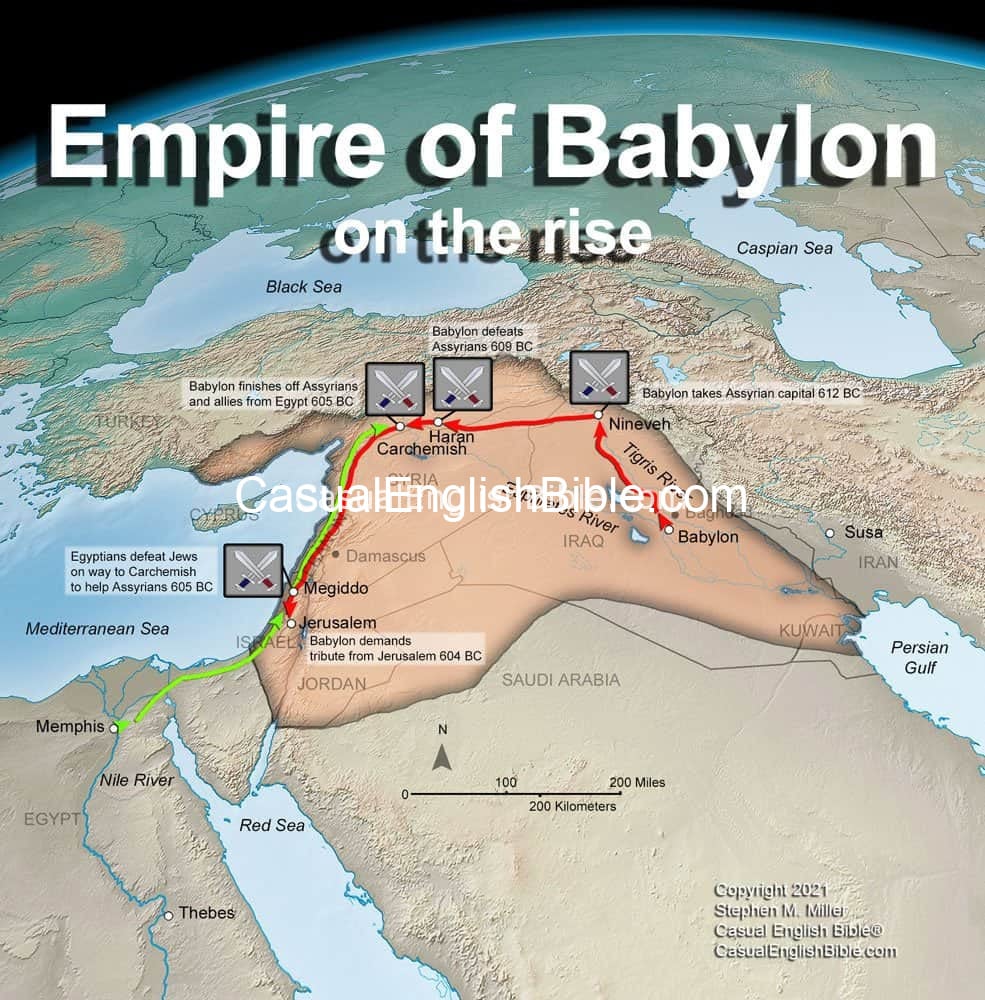Habakkuk 1
Blunt conversation with God
Habakkuk’s mission
1This is a message [1] the prophet Habakkuk was told to deliver.Accusing God
2LORD, how long do you expect me to beg for help? [2]
When do you start listening? Just so I know.
I scream to you, “We’re under attack!”
So, why won’t you save us?
You tolerate sin, so it’s everywhere.
I see violence and destruction.
I see arguing and fighting.
4There’s too much of it for the law [3] to handle.
Justice suffers.
Bad people win their cases and good people lose.
Justice dies.
God confesses he’s backing the bad guys
5Lift your head high enough to see the nations around you.
You’ll be amazed at what you see.
I’m about to do something unusual in your lifetime.
You won’t believe it when I tell you.
Those violent people quick to attack.
They’ll sweep across your world,
Stealing people’s homes for themselves.
7They terrify everyone.
The only law they know is the law they write.
They do whatever they want.
8Their horses outrun leopards,
And are meaner than wolves in the dark.
Their cavalry charges into battle,
Launching swift attacks from long-distance.
They fly on the ground like an eagle in the sky,
And swoop on the prey they kill.
9The army comes to hurt and to kill.
They blow in like a desert storm,
Sweeping up prisoners like sand.
10They laugh at enemy kings,
Making fun of them to their faces.
They don’t worry about city walls.
They build dirt ramps as roads to the top.
11They blow past the walls
Like wind in the air,
Guilty and wicked as sin.
They worship themselves,
For strength is their god.
Habakkuk: Aren’t you a Holy God?
12LORD, aren’t you eternal,
From ages past and on to forever?
Holy God, you will never die.
Yet you give these people the job of a punisher?
You are the solid Rock in my life.
Yet you tell these people to punish us?
You don’t tolerate evil among us.
So why on earth would you tolerate these intolerable people?
How can you side with the bad guys,
Letting them kill people better than they are?
14You’ve made this world a sea of inhumanity.
We’re like fish [5] swimming around without a leader.
15The wicked are fishermen who catch us with hooks,
And with dragnets pulled behind their boats.
They love it when they catch us.
16So, they sacrifice to their nets as they would to a god.
They burn incense in worship, as well.
For the net feeds them, in a life of luxury,
And serves them the best foods of all.
17Are you going to let them keep filling their nets,
Destroying our cities, and killing without mercy?
Footnotes
The Hebrew word, massa, sound a bit like our “message.” It can mean: message, inspired message, oracle, prophecy, announcement. Bible writers sometimes describe how God got his inspiration or messages to the prophets through dreams, sometimes called “visions of the night” (Job 33:14). But in daylight, they were often described as a trance (Acts 10:10).
It’s unclear if this debate with God is a role-play as a teaching tool or if Habakkuk is really getting into it with God, by asking questions anyone would wonder about. Believers still ask Habakkuk’s underlying question: Why does God allow bad things to happen when he could stop it? A fireman will risk his life to save a little girl huddled in a closet while her New York City apartment burns. Would God do nothing while the child burned to death? If so, what kind of god is he? That’s the question, and that’s the sharp tone of the question.
The “law” here is the Torah, the Jewish collection of laws that Moses said he got from God and that he preserved in writing for the Israelites, ancestors of today’s Jewish people (Deuteronomy 31:24).
Babylonians from what is now Iraq were the first of two invaders to destroy Jerusalem: Babylon in 586 BC followed by Romans in AD 70. Babylon also destroyed other cities throughout the only surviving Israelite nation. The northern Jewish nation of Israel fell to Assyria more than a century earlier. Most of their leading citizens got killed or deported abroad. Israel fell off the world map. Babylonians would do the same thing to the southern nation of Judah, deporting the survivors who would leave behind ghost towns littered with corpses. Fifty years later, in about 538 BC, Persians from today’s Iran defeated Babylon and freed the Jews and other political prisoners. Some Jews stayed where they had been replanted for a generation or more. Others moved back to Jerusalem.
Habakkuk describes what the Babylonians are doing in a way that sounds a bit like “shooting fish in a barrel.” They’re trolling for unsuspecting fish—representing innocent people like the Israelites of Judah—capturing them with nets. The fish are helpless then, and about to get gutted. But the fishermen are happy.
Discussion Questions
- Sorry, there are currently no questions for this chapter.









